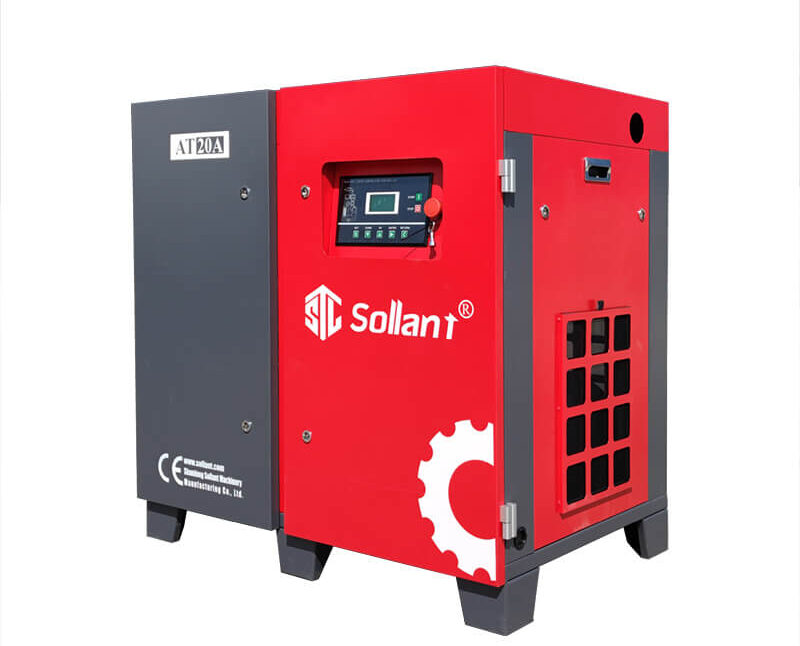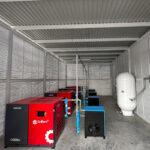Variable frequency single-stage compressors have several advantages over industrial frequency air compressors. Here are some of the main advantages:
1.Energy efficiency: Variable frequency single-stage compressors can adjust the speed of the compressor motor to match the required air output. This means that they use less energy than industrial frequency compressors, which run at a fixed speed regardless of the air output requirements. By using less energy, variable frequency compressors can help to reduce operating costs and lower the environmental impact of the manufacturing process.
2.Longer lifespan: Variable frequency single-stage compressors typically have a longer lifespan than industrial frequency compressors. This is because they operate at lower speeds and temperatures, which reduces wear and tear on the compressor components. This can help to reduce maintenance costs and downtime.
3.Flexibility: Variable frequency single-stage compressors can be adjusted to match the specific air output requirements of different manufacturing processes. This means that they can be used in a wider range of applications than industrial frequency compressors, which are typically designed for specific air output ranges.
4.Improved air quality: Variable frequency single-stage compressors can help to improve the quality of the compressed air. This is because they can adjust the air output to match the specific requirements of the manufacturing process, which can help to reduce contamination and improve air purity.
Overall, variable frequency single-stage compressors offer several advantages over industrial frequency compressors. They are more energy-efficient, have a longer lifespan, offer greater flexibility, and can help to improve the quality of the compressed air. As a result, they are becoming increasingly popular in many manufacturing applications.
Sollant Focus on Energy Saving



